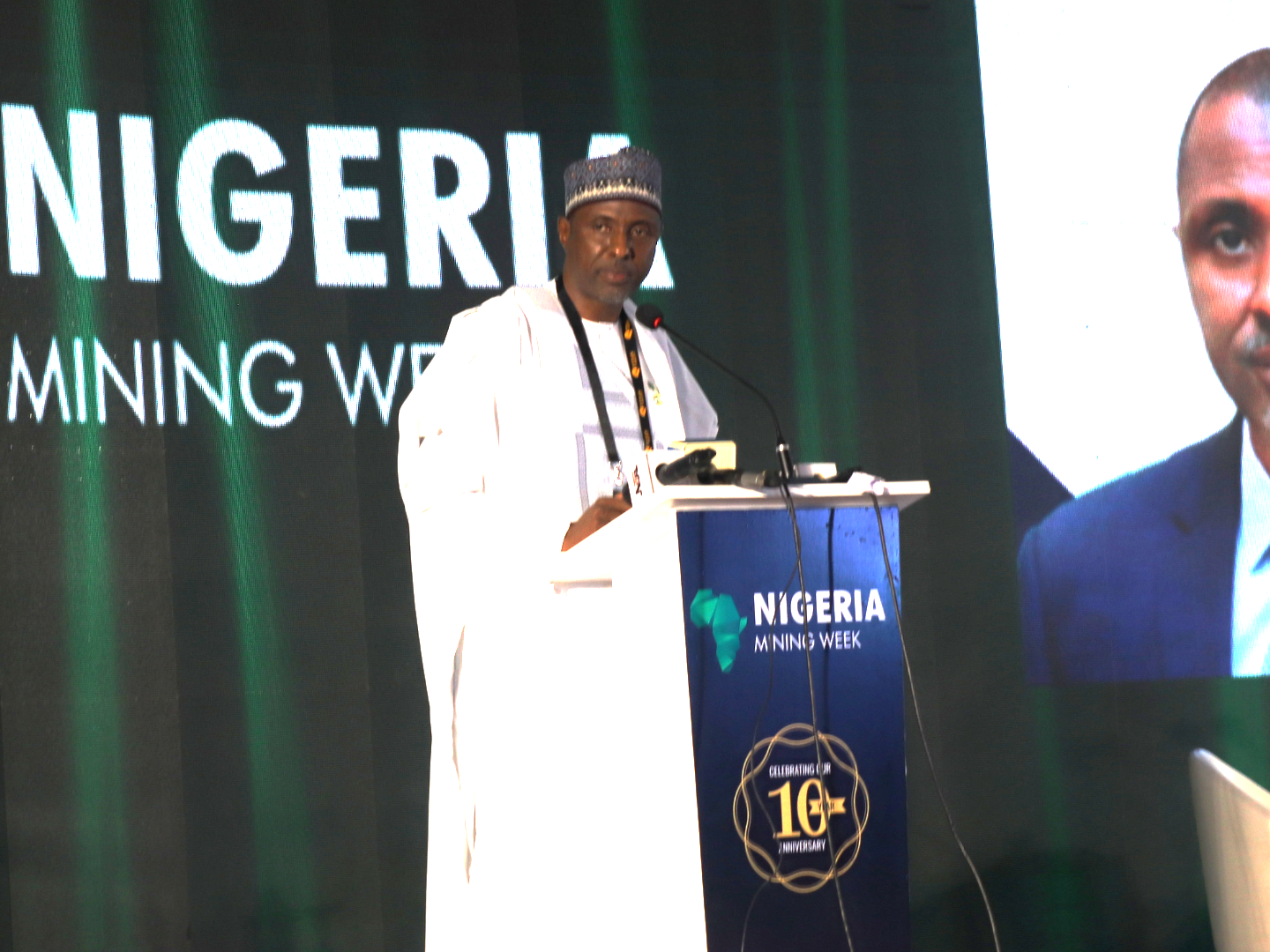President Bola Ahmed Tinubu has charted a bold new path for Nigeria’s economic future with the announcement of a historic ₦1 trillion investment in the solid minerals sector, the most ambitious mining initiative in the nation’s history.
Join our WhatsApp channel for more news updates
Speaking at the 10th edition of Nigeria Mining Week 2025 in Abuja, the President—represented by Secretary to the Government of the Federation (SGF) Senator George Akume—described mining as “Nigeria’s new frontier of national prosperity.”
This unprecedented funding forms part of a wider ₦4.5 trillion allocation in the 2025 federal budget, targeting geoscientific exploration, nationwide geological mapping, and infrastructure upgrades to unlock the country’s vast untapped mineral wealth.
“This goes beyond mining,” Tinubu said. “It is a strategic investment in jobs, industrialisation, and innovation—laying the foundation for a post-oil, globally competitive Nigeria.”
He revealed strong sector momentum, with revenues rising from ₦6 billion in 2023 to over ₦38 billion in 2024, driven by reforms, tighter regulation, and the establishment of the Nigeria Solid Minerals Company to attract private capital and boost local processing.
Tinubu further urged African nations to retain more value from their resources through domestic industrial ecosystems. “Africa must evolve from exporting raw materials to exporting finished products. Nigeria is ready to lead—from minerals to miracles.”
ALSO READ:
Nigeria Mining Week 2025 opens with bold vision for a new mining-driven economy
He reaffirmed his commitment to environmental protection and NEITI transparency and called for unity among government, investors, and host communities to make mining a major GDP contributor. “Nigeria must become a continental model for sustainable, inclusive development,” he concluded.
A frank assessment—and a roadmap forward
In his welcome address, Permanent Secretary of the Ministry of Solid Minerals Development, Faruk Yabo, delivered a candid assessment of the sector, acknowledging its vast potential yet minimal impact—contributing less than 1% to GDP, with only ₦401.879 million recorded in 2023. He stressed that this underperformance demands urgent reform.
Yabo highlighted decisive government actions, including the revocation of inactive or abused licenses and crackdowns on corruption and mineral theft. He made the case for innovation, pointing to the Nigerian Mineral Resources Decision Support System (NMDRSS)—a real-time data platform designed to improve transparency, investor confidence, and efficiency.
He also noted ongoing legislative reforms, such as the review of the Mining Act 2007, aimed at aligning regulations with global best practices. However, he cautioned that issues such as policy overlaps, bureaucratic delays, and multiple taxation continue to hinder investment.
To strengthen financial accountability, Yabo praised the expanded role of the Nigerian Audit and Integrity Team (NAIT), which reconciles company payments with government receipts and is developing a real-time data centre aligned with EITI standards to track production, revenue, and environmental compliance.
Looking ahead, he emphasised that the global energy transition presents a transformative opportunity. With minerals critical to solar and green technologies, Nigeria can place solid minerals at the centre of a new economic era. He urged collaboration between government, industry, and communities to convert potential into tangible national prosperity.
“Now is the time,” Yabo said, “to move from possibilities to impact—turning our mineral wealth into real national wealth.”

